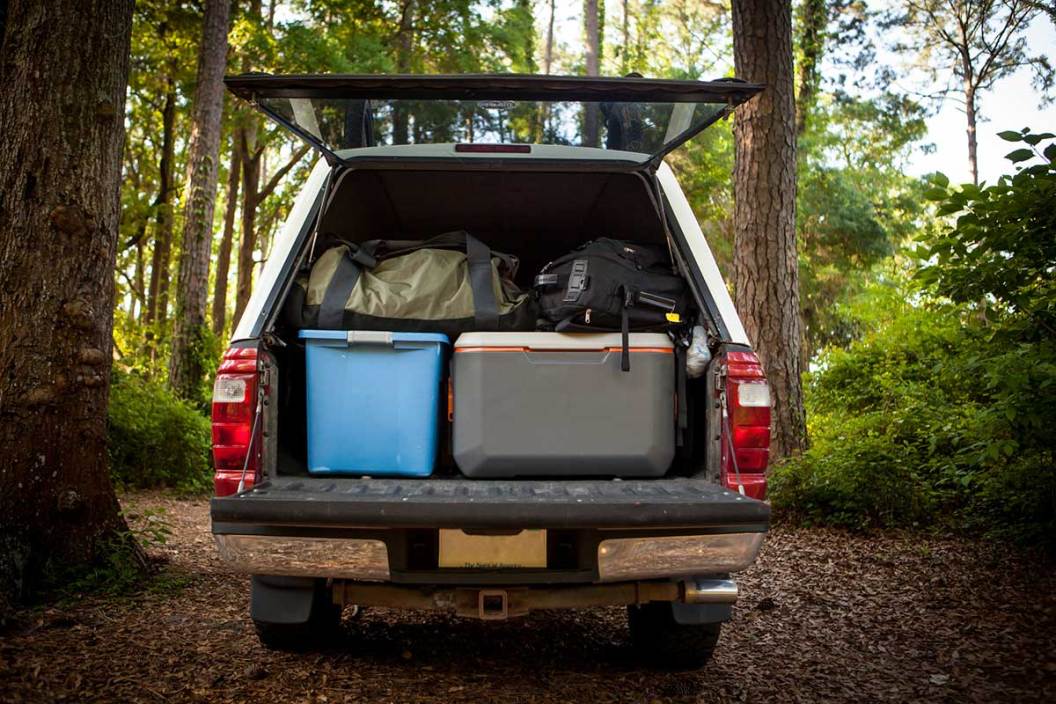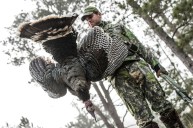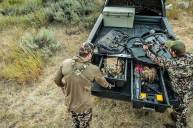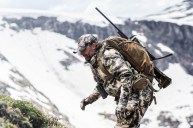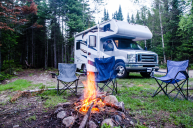So you've done your research, you've drawn or bought your tags, and you've picked out your hunting area. Now you've got to pack for that out-of-state hunting trip!
When it's time to pack up your gear and prepare to head out, it can be hard to focus with the excitement of the trip ahead. The hard parts are behind you, so packing your vehicle should be simple, right? The correct answer is "Yeah, it should be."
But how many times have you run out of room in a vehicle, or soaked your gear in rain because you drive a pickup without a bed cover, or interrupted your hunt to drive to the nearest store to purchase something that you forgot? It is safe to say that everybody that travels has run into these problems at one time or another.
If you're brand new to traveling for a hunting trip, there will definitely be some kinks to be worked out on your first attempt or two, but that's okay! In an effort to save a new traveling hunter some time, here is a guide on how to do it efficiently. These tips will serve a longtime traveling hunter as well, no matter how many trips you've already made in your hunting career.
Packing your vehicle for an out-of-state hunt should never be overlooked or breezed through, because it is crucial to your success in terms of function and comfort.
Here's what I recommend doing.
Brief Vehicle Inspection
It is always a good idea to make sure that your vehicle is in good enough shape to make the trip before taking off down the road.
Make sure your vehicle is caught up on oil changes, there are no "check engine" lights on, the tires have appropriate air, and you have a spare tire available. It is also never a bad idea to have a kit prepared with extra fuses, spark plugs, and other things of that nature in your vehicle as well. You never know how far you might be from a parts store or mechanic.
Make a List
Several days before the trip it would be beneficial to make a list of everything you plan on taking. Spend the next couple days rehashing the list and make sure all items are appropriate. An example list is as follows:
- 2 sets of base layer clothes (socks, undershirt, and underwear)
- 1 set of exterior clothing (jackets, hats, masks, and gloves)
- Cased weapon and ammo (or arrows)
- 1 cooler with ice, food, and drink
- 1 large empty cooler
- Toiletry bag for bathroom items
- 2-3 dry storage containers for hunting/camping gear (if necessary)
- Extra water (case of bottled or 5 gallon container)
- First aid kit, snakebite kit, or emergency kit
The previous list is just an example and can be tweaked to match your personal needs. The time of year and lodging considerations will change your list and definitely affect the size of your load.
Next, you should lay out all of your gear and packs before loading into the vehicle to make sure that all appropriate gear is ready to make the trip with you. Check items off the list as they are loaded so you don't forget anything.
Load Your Gear Carefully and Thoughtfully
As you are going though your list and loading the gear into your truck, remain thoughtful in terms of item placement. Bags of clothes and other soft items make great cushions or bases for piling. Weapons should be placed in a tight and uncompromising spot. You don't want your sights or scope to be knocked around during the ride or be under constant load pressure from heavy items piled on top of it.
When putting bags and gear into vehicle, try to avoid covering your back windows. If all of your gear doesn't fit into the cab comfortably, see what can be secured on the roof, or better yet, in the bed of a truck.
Dry Storage Space
Pickup trucks are great for traveling, but unless you have a bed cover or camper shell, the dry storage space is limited. I have very little gear that I am willing to let get wet, so creating more dry storage space is important.
Large, well-sealed plastic totes make great dry storage containers to ride in the bed of your truck. This works great as storage for hunt camp gear, hunting decoys, or other hardy hunting gear.
I would advise against putting weapons or optics anywhere but in the cab of your vehicle, just to ensure that they are safe.
Strap Everything Down
If you don't have a bed cover on your truck, you'll want to make sure that everything you put in the bed stays there. Empty coolers and plastic totes like to catch wind and blow out easier than you'd imagine. Ratchet straps and ropes should be applied over the load to secure it to the truck. Plus, you'll have the extra straps and rope in camp with you.
It would be wise to check your strapped-down load at each stop to make sure that it hasn't shifted or a strap hasn't broken.
Final Considerations
My best advice would be to always make a final gear check before it's too late. If your camp or hunting area is far from the nearest town, it is best to make one final stop in said town to check for lost, forgotten, or broken items. Quickly check your vehicle and fill it with gas one final time. Reload on necessary items. This might be your last chance for miles, so it is best to make sure everything is available and in good shape.
Finally, make sure somebody knows where you are. I always encourage hunting with a buddy, but if you do make a trip alone, tell several people where you are going and give them a detailed plan. Anything can happen and being prepared could prevent a disaster.
Traveling to hunt is a privilege that I hope every hunter will be able to enjoy. It is a chance to learn about new places and wildlife, and an opportunity to open your mind. Oh, and it can be a ton of fun, too.
Good luck to all the travelers this hunting season, and remember: don't take packing your vehicle lightly.
